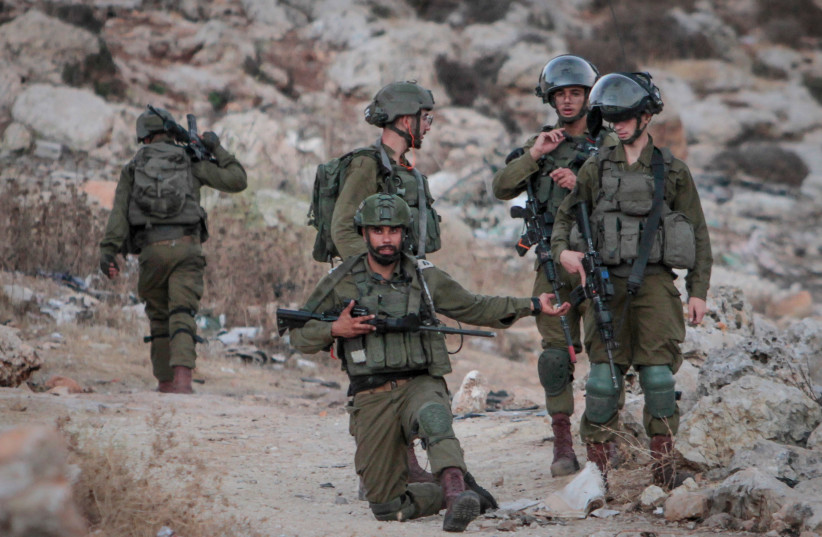The arrest operation on Sunday targeting a dangerous Hamas cell in the West Bank not only stopped a ticking time bomb but showed just how serious the terrorist group is.
Based in the Gaza Strip, Hamas constantly attempts to carry out attacks in the West Bank. But this was on a far different level.
The raids, which took place in five different locations in the West Bank, were aimed at dismantling a large, decentralized Hamas terrorism infrastructure that was planning to carry out imminent terrorist attacks there and in Israel.
The attacks were reminiscent of the ones perpetrated by Hamas and other Palestinian groups during the Second Intifada, complete with bombings and the kidnappings of Israeli soldiers and civilians.
According to the military, Israel’s defense establishment had been following the cell closely and acted when the Shin Bet internal security agency received intelligence that they were about to follow through with their plans.
More than 20 operatives belonging to the cell were arrested by security forces and five weapons were seized. Additional cell members and their weapons are still believed to be on the loose, with Israel on their trail.
Building the infrastructure’s capabilities must have taken several months, if not more than a year. It meant funneling funds to purchase the weapons and carrying out training needed for the attacks.
The funds could have come from the group in Gaza or from Turkey, which the group’s number two, Saleh Arouri, calls home.
The deputy head of Hamas and one of the founders of its al-Qassam Brigades military wing, Arouri is responsible for several bloody terrorist attacks against Israeli civilians and soldiers, including the 2014 kidnapping and murder of three Israeli teenagers in the West Bank that triggered Operation Protective Edge.
It would not be surprising if Arouri was also behind the cell that was targeted by Israel yesterday.
It is not hard to imagine that had the cell been successful in carrying out its plans, Israel could have found itself in another deadly conflict with the terrorist group, both in the West Bank and the Gaza Strip.
Since Operation Guardian of the Walls and the cancellation of the Palestinian Authority elections, Hamas and Fatah have been fighting for dominance. With armed struggle gaining support following the May conflict, terrorists are feeling more confident to engage Israeli forces.

Hamas has a strong presence in many cities and villages in the West Bank. A recent study published by the Palestinian Center for Policy and Survey Research found that 45% of Palestinians believe Hamas should lead and represent them, while only 19% said it should be the secular Fatah Party of Palestinian President Mahmoud Abbas.
The poll found that 78% of Palestinians want Abbas to resign.
The Hamas cell that was targeted likely also wanted to increase the pressure on Abbas and the ongoing and important security coordination between Israeli Security Forces and Palestinian Authority Security Forces (PASF).
Though the PASF have been trained and armed by the United States and other international forces, they have struggled to crack down on Hamas activities, in part due to their fear of engaging with the group’s operatives. Because of that fear, the large Hamas cell was able to coalesce right under their noses.
The fact that one of the Palestinians killed during the raids was a member of Palestinian Islamic Jihad (PIJ) shows that the two terrorist organizations cooperate not only in the firing of rockets from the Gaza Strip but also in terms of deadly attacks emanating from the West Bank.
The group also showed the Palestinian street that less than six months after Operation Guardian of the Walls, they are ready and willing to drag the IDF into another deadly conflict, both in the Gaza Strip and the West Bank.
Hamas has made it clear that even as they negotiate with Israel to rebuild the destroyed coastal enclave, they have not abandoned the armed struggle against Israelis.
